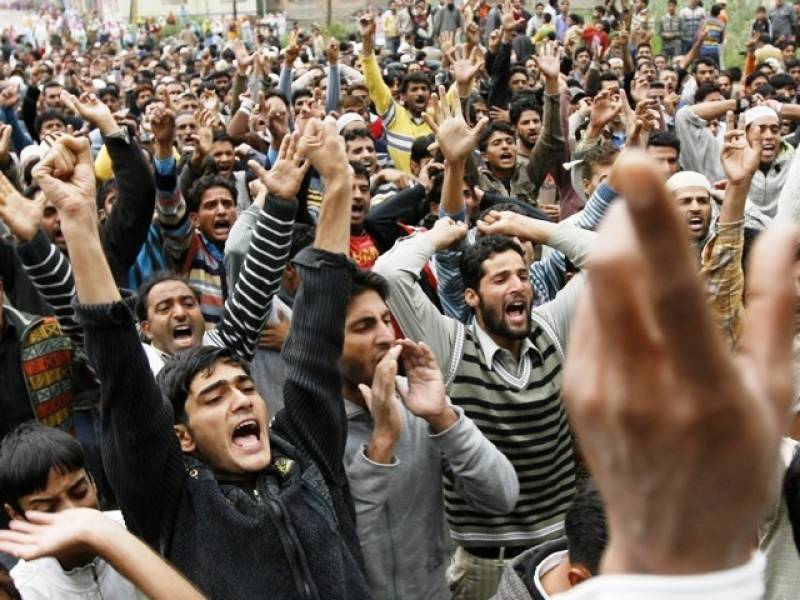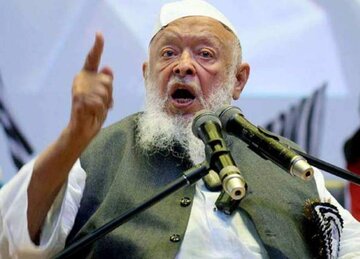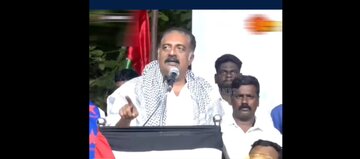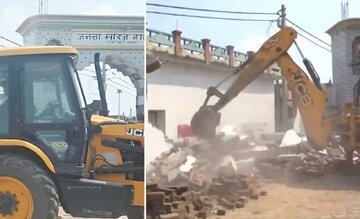(AhlulBayt News Agency) - The leaders of these sects and communities also stated that when it comes to the Kashmir dispute, they were together under the broader umbrella of Kashmiri Muslim identity in demanding a resolution to the Kashmir dispute.
A recent report made by the Indian Ministry of Home affairs has recommended that “special development scheme” for Shia, Gujjar-Bakerwal and Pahadi Muslims can prevent them from being “lured away by the Kashmiri separatist element”.
There has also been a consistent line adopted by certain intellectuals, policy makers and government leaders that the political aspirations of Gujjar-Bakerwals, Pahadis and Shias were separate from the majority Kashmiris in the Valley.
Shia leader Masroor Abbas Ansari said that the main aim of the government in claiming that the Shia community is not with the Kashmir freedom movement is that it wants to show the world that the Kashmir struggle is fragmented.
“The government wants to show that it is not the people’s movement. Besides, they want to divide and rule,” Ansari said.
“This is not the reality,” he added. “Shia community has been at the forefront of the Kashmir struggle since 1931, along with their Sunni brethren. They have fought alongside.”
Ansari pointed out that in last year’s public uprising, Shias expressed solidarity with the freedom movement and came out in large numbers in Kargil, Poonch and Jammu regions to make this clear.
“Shias will continue to fight and take this struggle forward,” Ansari said. “The government is working on an insidious agenda. It cannot digest the unity of Kashmiris who are unanimous in demanding their right to determine their political future.”
“I want to make it categorically clear that Kashmir is a political issue and we stand with our Kashmiri brothers. We all have one Muslim identity, be it Kashmiri, Pahadi or Gujjar. Our political aspirations lie within the broader Muslim identity of the state,” regional president of Pahadi Culture and Welfare Forum, Sahil Maqbool, told Kashmir Reader.
Referring to the recent home ministry report and the argument that Pahadis have different political aspirations than mainland Kashmiris, Maqbool said that this was a “calculated move by the government to create divisions within the Kashmiri society.”
“Their analysis is always wrong when they try to show Pahadis as not being with Kashmiris in terms of political aspirations. We are the worst affected due to the conflict as we live along the borders. We want this problem to be solved,” he said, adding, “The government is exploiting the small grievances of the community such as their demand for Scheduled Tribe status. Some think that because we are demanding Scheduled Tribe status, we are happy with the present political arrangement. This is not true.”
Maqbool said that while participating in all-India conferences, the Pahadi community is often told by Indian participants that they believe the Pahadis are not with the Kashmiri struggle for self-determination.
“We correct them. We tell them that when it comes to the Kashmir dispute, we are one. All Muslims are together,” Maqbool said.
Influential Gujjar leader Mian Altaf told Kashmir Reader that the recent MHA report on the Gujjar and Bakerwal community is misleading.
“Why do they (government) think like this? All sects and ethnic groups live in the state together. The government has to understand that we are one. We are Muslims; our problems are the same” Altaf said.
“The main idea of such (state) narratives is to divide. Pit one community against the other. Whosoever is doing it, they should understand that by raking up such issues, they will only create more problems,” he added.
/106





